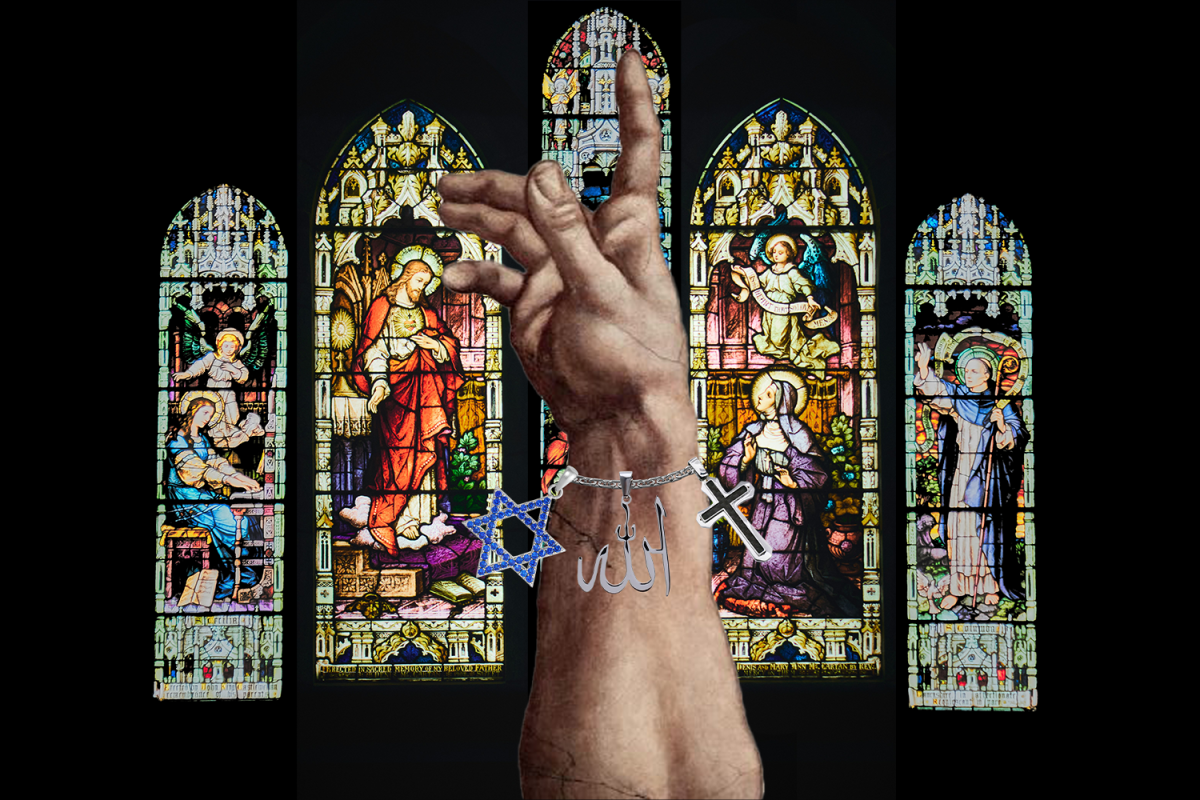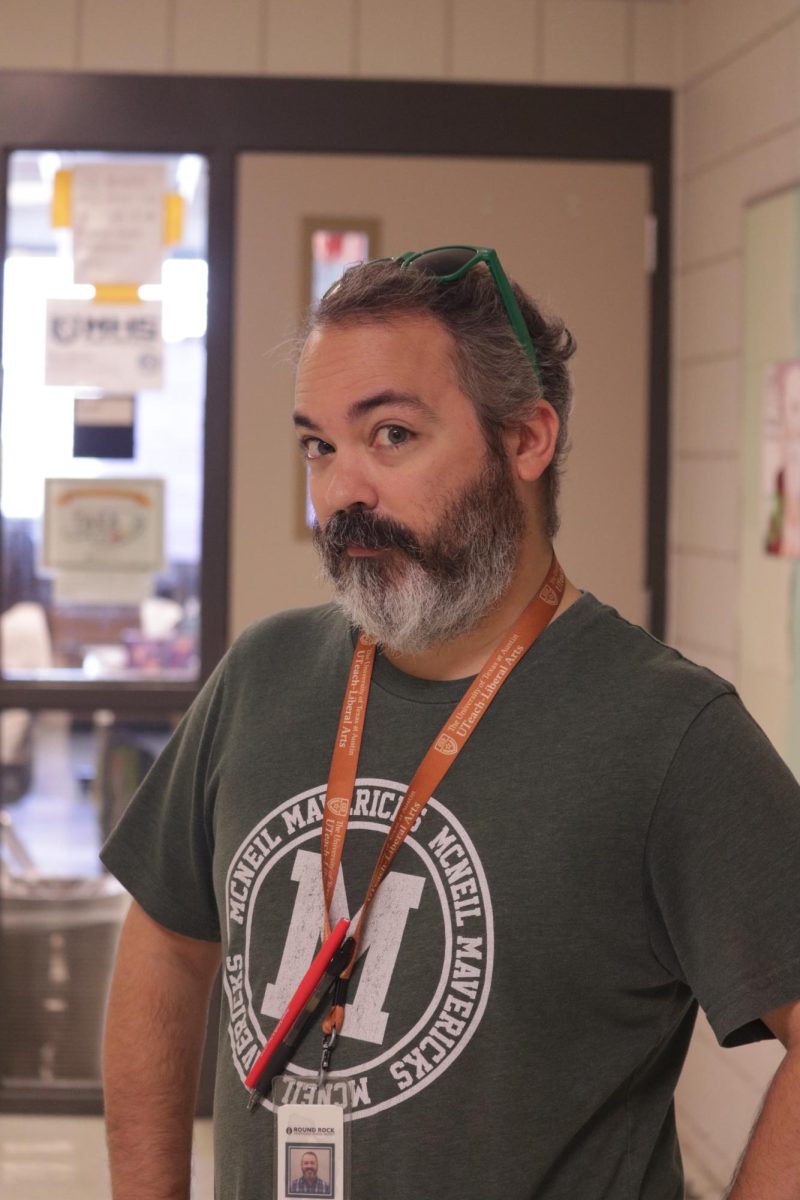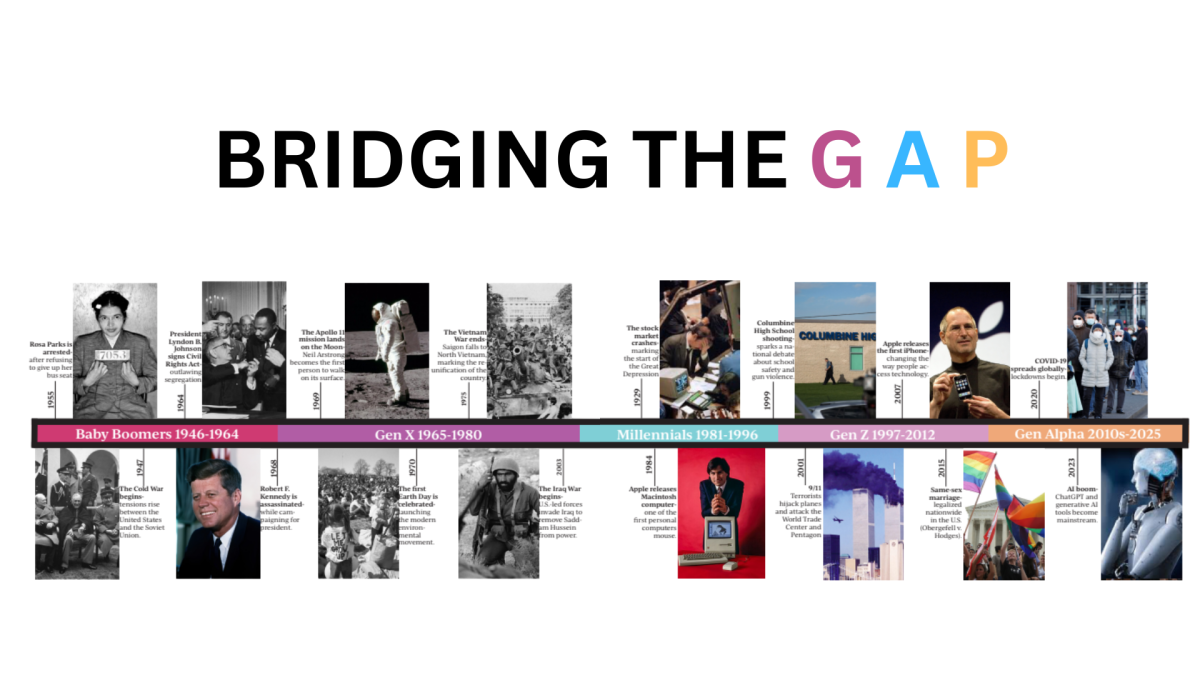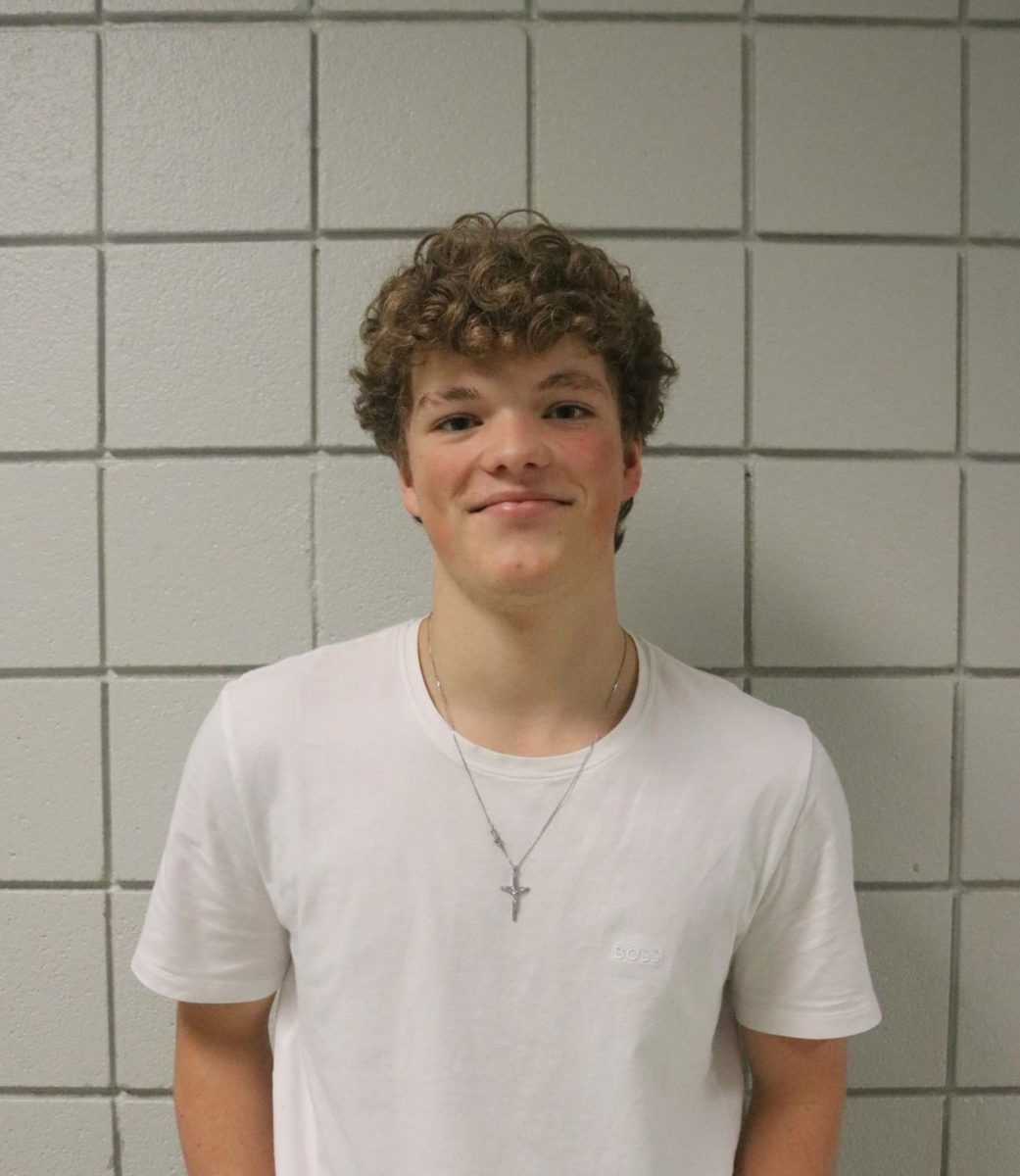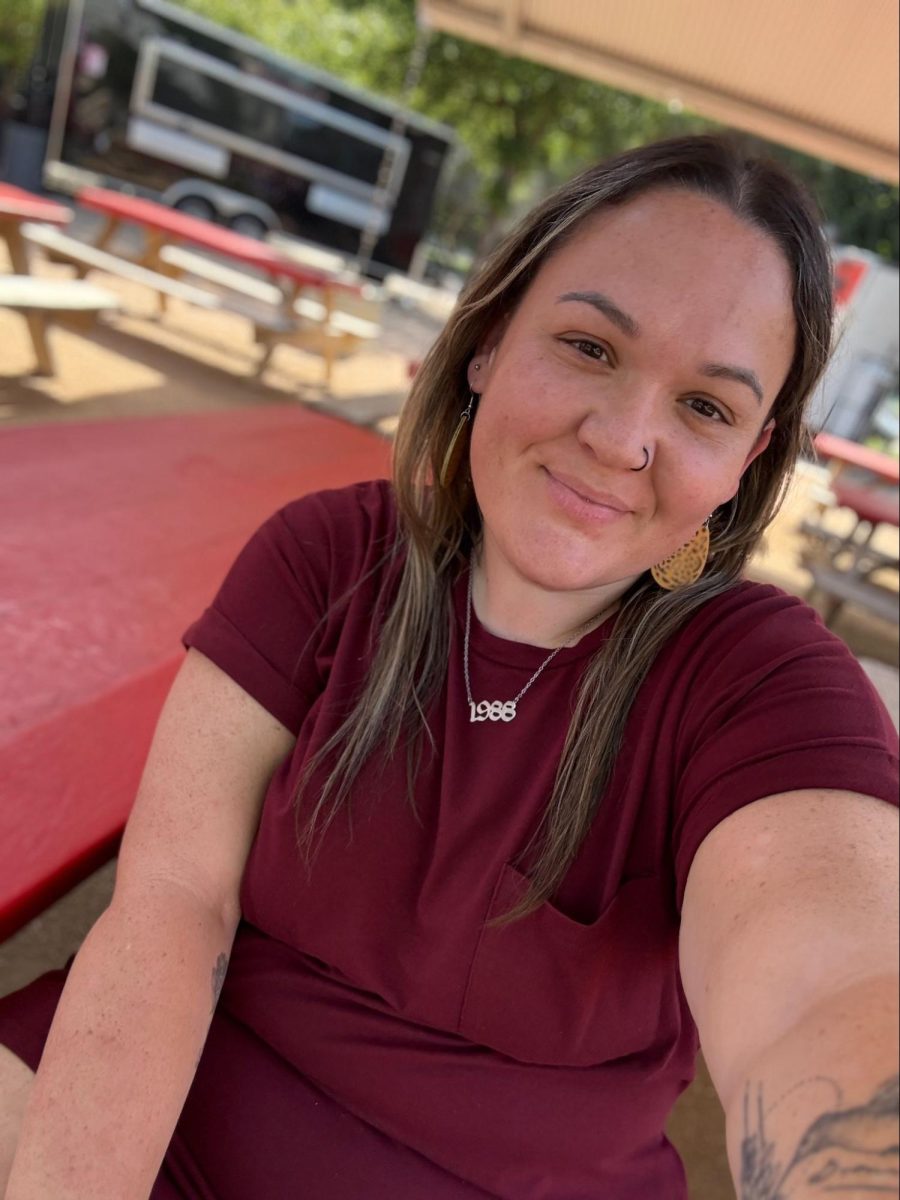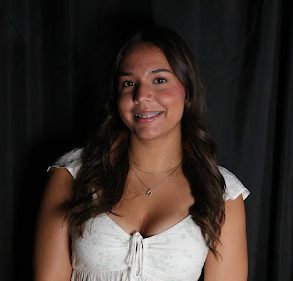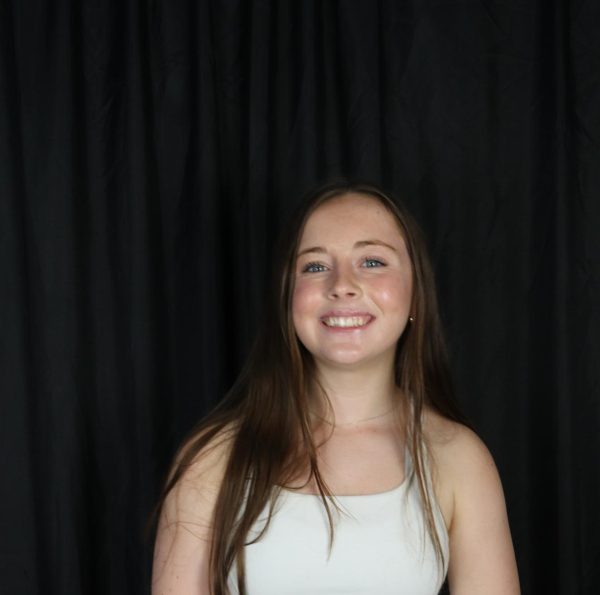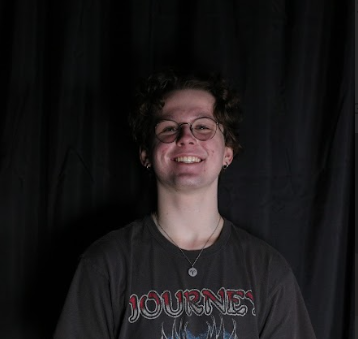The world is a melting pot of different races, cultures and religions, and here on campus the variety of students who have different lifestyles is just as prevalent as the rest of the world. Judaism, Islam and Christianity are three religions with related origins rooted in the story of Abraham, but each student’s daily to weekly life looks different in the practice of each religion.
“Worship, whenever it comes to prayer time in Islam is definitely a lot more structured, which was something I really liked,” junior Sage Rios said. “Worshipping was very routine, so once you’ve gotten into the routine of intentionally doing it and having a reason why, it was nice to have a place to go to multiple times a day to de-stress that wasn’t harmful.”
Rios said the prayers are something that she admired because of the structure it added to her routine. Being new to the practice of Islam, sophomore Kincade Stanley has experienced the same feeling of structure.
“For me I was trying to find something new and compatible and overall I started to look for the truth,” Stanley said. “That’s how I found Islam and I’ve been practicing for around eight months now. As a teenager there’s a lot of things you run into, like alcohol and other sins, but Islam for me gives me structure and something to fall back on.”
While Rios only mentioned praying structurally and not to Allah, as a reformed Jew sophomore Benjamin Cohen prays however he wants to Yahweh.
“Some people pray more routinely, especially in the Jewish community, but I don’t really do that as much,” Cohen said. “As a reformed Jew, a lot of it is kind of up to your interpretation and everybody does what they want to do.”
In some religions praying as a congregation is encouraged. According to the Bible in Matthew 18:19-20 it says, “Again, I tell you that if two of you agree on earth about anything you ask, it will be done for you by my Father in heaven. For where two or three gather in my name, there I am with them.” This verse to Christians emphasizes the power of praying together and God’s presence, for sophomore Maurycy Pawlowski, this is something he often does.
“So usually I try my best to pray in the morning before school,” Pawlowski said. “Then before I go to bed my whole family gets together and we pray before bed.”
The Holy Books
Books of scripture are very important according to Stanley, while the three religions share stories, their holy books differ.
“Our book of scripture Is called the Torah,” Cohen said. “The Torah consists of the first five books of the Hebrew bible.”
Cohen said he follows the Torah which is the first five books of the Old Testament: Genesis, Exodus, Leviticus, Numbers and Deutornomy, but this is only one section of the Hebrew Bible (Tanakh). According to the Union of Reform Judaism, the Tanakh is composed of three sections: the Torah (law: foundational teachings), the Nevi’im (prophets: historical and prophetic books) and the Ketuvim (writings: poetry, wisdom and historical books). The whole Tanakh makes up the teachings of the Old Testament for Judaism.
“I think that the oral tradition of the Quran was a big part that stuck out to me,” Rios said. “The oral tradition of the Quran would be memorizing and reciting it and eventually memorizing the whole book. Approximately 2.5 million people have memorized the Quran in this generation only.”
The Quran is the sacred scripture of Islam and believed to be revealed by the angel Gabriel to the Prophet Muhammad. It is subdivided into 114 chapter-like units called “sūrahs,” a word used within the Quran to designate revelatory passages. The sūrahs are subdivided into verses called āyāt (singular āyah), a word that literally means “sign” and is also used in the Quran to designate manifestations of God’s power and grace, such as miscellaneous aspects of the natural world, or the punishments that God is said to have inflicted on sinful peoples of the past.
“Knowing that what you consume media wise impacts how you perceive the world drastically,” Rios said. “Keeping that awareness is really helpful in daily life especially with social media being so mainstream.”
The Quran for Rios holds truth to her and she is still aligned with its morals. Junior Reese Hibbard experiences similar beliefs as a Christian but with her favorite scripture from the Bible, Jeremiah 29:11.
“For I know the plans I have for you, declares the Lord, plans to prosper you and not to harm you, plans to give you hope and a future,’” Hibbard said. “That verse has always just been very encouraging to me, especially ever since I got to high school, I just felt like it’s always been reassuring to me.”
The Protestant Bible is different from the Catholic Bible, both consist of the Old Testament and the New Testament but according to Catholic Australia, the Roman Catholic and Orthodox Churches did not follow the Protestant revisions and they continue to base their Old Testament on the Septuagint. The result is that these versions of the Bible have more Old Testament books than most Protestant versions. Catholic Old Testaments include the two books of the Maccabees, Baruch, Tobit, Judith, The Wisdom of Solomon, Sirach (Ecclesiasticus), additions to Esther and the stories of Susanna and Bel and the Dragon which are included in Daniel.
The Roots of Abraham
Each book that was just listed is all connected in one way or another. The Torah is based in the Old Testament, and the Bible and Catholic Bible are merely the same, more books in the Old Testament than the Catholic Bible has is what makes the difference. The Quran does not have the exact same stories as the other books, but shares the same prophets and specifically the story of Abraham.
In the story, it is said that Abraham was called upon by God to leave his home and venture to a new land, promising to make him a great nation and bless the peoples around him. Abraham’s son Isaac became the grandfather of the 12 Tribes of Israel, and his son Ishmael became a prophet of Islam.
“Judaism is also tied to the story of Abraham,” sophomore Jason Rodriguez said. “The origins of Judaism trace back to the covenant God made with him.”
According to the BBC, the history of the Jewish people begins in the Bronze Age Middle East when God promised a leader called Abraham would be the father of a great people if he did as God told him.
Jews regard Abraham as the first Patriarch of the Jewish people. Abraham was the first person to teach the idea that there was only one God; before then, people only believed in many gods. Beside scriptural connection between the three religions there are also physical monuments that exist to this day.
“You know it’s weird, because the stories and biblical monuments are historical,” Hibbard said. “Take Jerusalem for instance, they’re still there, they still have so much meaning, they’ve been there for thousands of years.”
Change is Normal
Although some individuals are brought up into their faith not everyone is, but religion impacts people all over the world. Through scripture, monuments, community lifestyle etc. junior Sage Rios made the decision to become a practicing muslim in the beginning of her freshman year but has experienced change in her faith since then.
“I started practicing Islam because I felt a lack in the Christian community where I grew up and I experienced a personal impact from the Muslim community around me at my old school ECHS in Round Rock,” Rios said. “I had taken my Shahada which initiates you to become Muslim and I practiced until the beginning of my junior year.”
Rios said she left because there was a disagreement of opinion of hers when it came to marriage, and it ended up changing her idea of how Islam represented women overall.
“When it came to marriage there was a lot of controversy over this one Hadith which is a quote that Islamic scholars would say and put it into books later on almost like scripture,” Rios said. “There were weak Hadiths and stronger ones, so some of them were more credible than others. This specific Hadith was talking about a woman and man that were married. If the woman refuses to sleep with her husband he can divorce her, which I thought was weird.”
Stanley said he recognizes there is misconception in the Middle East but also believes many peoples beliefs align with one another.
“One thing I wish people knew is that we worship the same god that the Christians and Jews worship,” Stanley said. “We’re the same, we believe in the same prophets, we believe in the same things that they believe in generally. It’s much more similar than how people see it, It’s not like foreign, far off religion.”
Rodriguez still follows the traditional norms of Judaism and one of his lifestyle choices is a Kosher diet.
“We stick to a diet where we can’t have any pork, meat or dairy on the same plate,” Rodriguez said. “We also can’t have fish without fins or scales.”
Cohen has differed from traditional Judaism, as a reformed Jew he said his lifestyle “is up to personal interpretation.”
“Reformed Judaism is a lot looser, it’s a lot more individualized,” Cohen said. “So you do what you think you should do.Instead of doing things that are put in place like, always having to eat kosher, always have to pray in the morning etcetera.”
There are so many different denominations in each religion, for some religions there are more conservative branches and other branches are more relaxed, some branches follow a whole different structure while all falling under the same umbrella, but one thing they all celebrate are certain days out of the year.
Holidays
There are holidays across all three religions, and Hibbard, Rodriguez, Cohen, Pawlowski each have their own favorite to celebrate. Although Rios is no longer a practicing Muslim, she continues to appreciate the holiday Dol Hejda.
“Dol Hejda is ten days of a certain month in the Islamic calendar where they recommend doing more good deeds during this time because they are more amplified,” Rios said. “I appreciated Dol Hejda because it reminded me of how good deeds are important and now that I don’t practice it islam it just reminds me that fasting is important and healthy for the body.”
Christians celebrate Good Friday as the day Jesus died on the cross and Easter as the day Jesus rose from the grave, as well as Christmas, which is a celebration of Jesus’ birth. Hibbard said she particularly likes this holiday because of the community and family it brings.
“Christmas is probably my favorite, I like December and my birthday’s the day after so I kind of get to share the celebration with God,” Hibbard said. “Then, family comes into town, and we invite people who don’t normally go to church to come with us.”
Catholics celebrate the same holidays as Protestants, but Pawlowski said he enjoys the smaller holidays they celebrate, like All Saints Day.
“We have a Christmas, we have Easter, but we also have a bunch of smaller holidays like the Assumption of Mary to Heaven, the Day of the Saint and All Saints Day,” Pawlowski said. “All Saints Day is thanking all the saints for what they have done for the church and asking for protection, that’s kind of the one that sticks to me the most.”
Jewish holidays include Hannakuh, commemorating the rededication of the Second Temple in Jerusalem, Passover which celebrates the liberation of the Israelites from slavery in Egypt and Yom Kippur, the most solemn religious fast of the Jewish year.
“Yom Kippur is the holiest day of the year, we can’t eat, drink, or shower,” Rodriguez said. “We have to pray and usually, you’re supposed to go to Jerusalem, but not all of us can. It’s a time for reflection and to seek forgiveness.”
Why It Matters
Hibbard said having her life rooted in her faith has helped her overcome the toughest things thrown her way, finding herself relying on it more and more as she gets older.
“Even when life is tough, [God] knows what’s going to happen,” Hibbard said. “Especially now, trying to figure out college, it’s very helpful to know that I don’t have to handle it all by myself.”
As Catholics, the Bible tells its followers to follow its words with their actions, Pawloski said it’s important to him to be an example of Christ and live how the Bible tells him to.
“It’s basically what I base my whole life around, everything is to make sure that I follow the plan that God has given me and just follow in his footsteps, trying to follow his example,” Pawloski said. “Some people treat religion like it’s just something you just add to who you are, like ‘Oh, I want to be Catholic’ but they don’t really base their life on it.”
Others, like Rodriguez, appreciate the people within their religion, and the community they have because of their faith.
“The Jewish community is a very small community,” Rodriquez said. “Like, anyone you know who’s Jewish, is instantly a brother, creating the best family.”
As a newer practicing Muslim, Stanley said that since becoming Muslim he’s seen a change in his life and in his goals.
”I was lacking guidance, like not really any motivation in life, I was just kind of wasting away a lot of my time,” Stanley said. “But now I have something to direct towards, or live for, like going to heaven, for example. I now have something that I can aim myself to achieve.”

